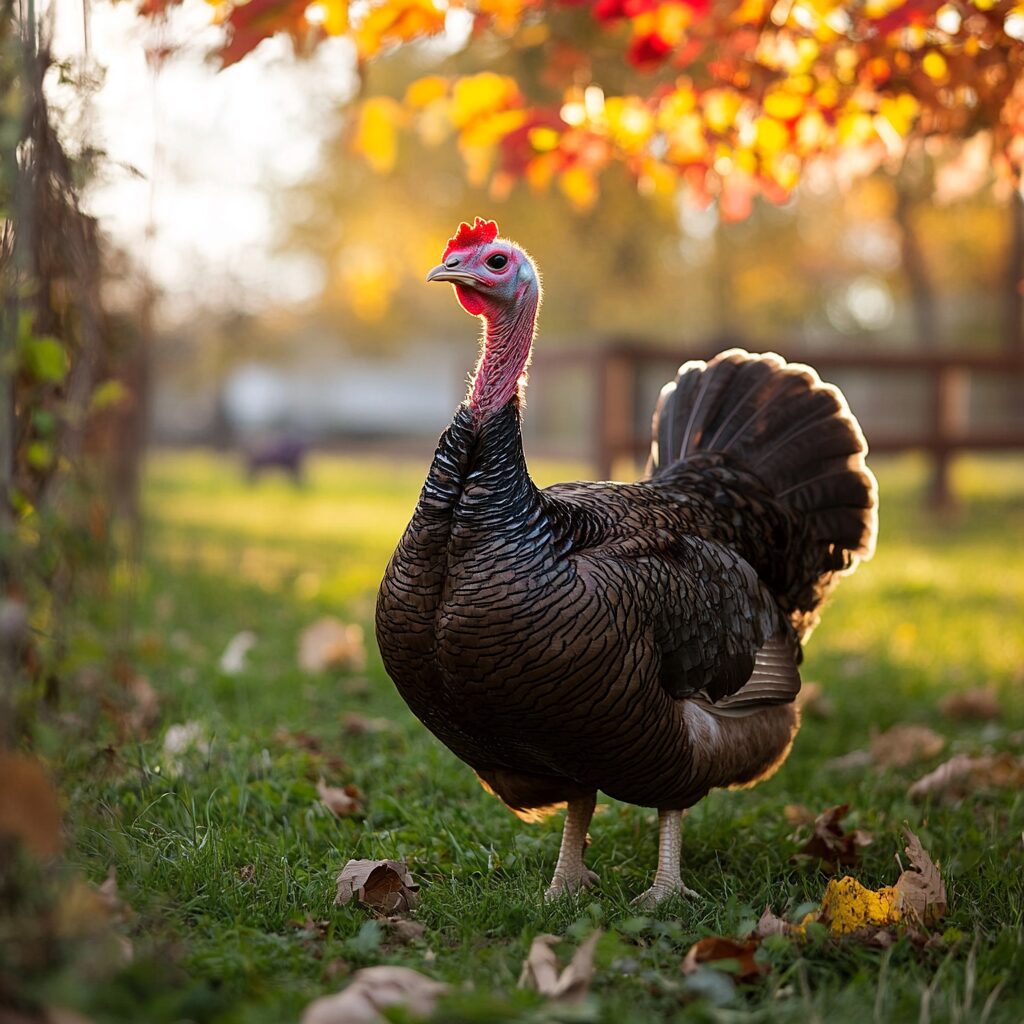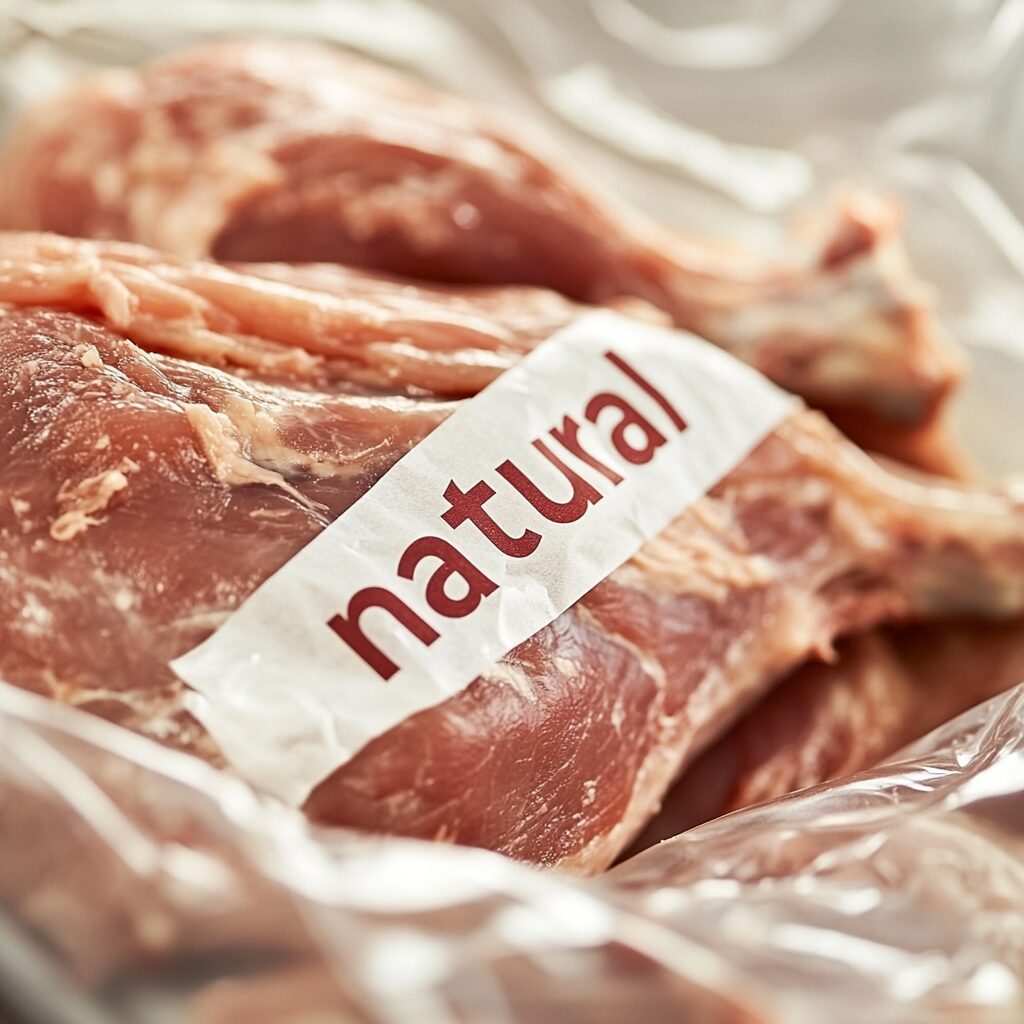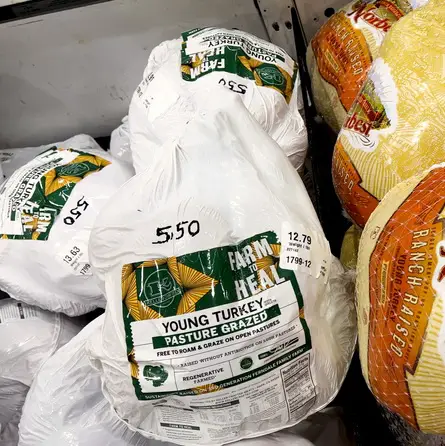As you browse the meat section this fall, you might notice an array of turkey labels making various claims about how the birds were raised. While terms like “cage-free” might sound promising, the reality behind these labels often differs from consumer expectations. In fact, most turkeys sold in the United States come from industrial farms, regardless of the marketing claims on their packaging.
Many cage-free labels state the obvious

The “cage-free” label on turkey products is perhaps the most misleading of all poultry claims. Turkeys are never raised in cages in commercial farming operations. This marketing tactic takes advantage of consumer confusion between turkey and egg production practices.
Conventional turkey farms house birds in large, open barns. While this means they’re technically “cage-free,” these facilities often pack thousands of birds into cramped spaces with limited access to fresh air or natural light.
When you see this label, remember it’s stating a universal industry standard, not a special farming practice. It’s similar to labeling salt as “cholesterol-free” – while technically true, it’s not a meaningful distinction.
Hormone-free claims are required by law
Another common label is “no added hormones” or “hormone-free.” However, federal regulations prohibit hormone use in all turkey production. This means every turkey sold in America is hormone-free, regardless of price or brand.
Companies using this label must include a disclaimer stating that federal law prohibits hormone use in turkey production. However, this disclaimer often appears in tiny print that many shoppers miss.
The continued use of this label demonstrates how marketing departments capitalize on consumer concerns about food production methods, even when those concerns are unfounded.
Ethical and thoughtfully raised lack standards
Terms like “ethically raised” and “thoughtfully raised” have no regulatory standards behind them. These subjective claims aren’t verified by third-party certifiers and can mean whatever the company wants them to mean.
While some producers using these terms may indeed implement higher welfare standards, consumers have no way to verify these practices. The USDA continues to allow these vague claims despite their potential to mislead consumers.
If animal welfare is important to you, look for verified certifications like Animal Welfare Approved, Certified Humane, or Global Animal Partnership instead of these undefined marketing terms.
Transport and processing conditions matter too
Even turkeys raised under excellent conditions face significant welfare challenges during transport and processing. Birds often experience stress from temperature extremes, dehydration, and rough handling during their journey to processing facilities.
Most turkey labels focus solely on living conditions during the growing period. They don’t address welfare during transport or processing, which can significantly impact the birds’ overall experience.
The Animal Welfare Institute has initiated legal action against the USDA regarding poultry handling standards during processing, highlighting the importance of considering the entire supply chain when evaluating welfare claims.
Natural label means minimal processing

The “natural” label refers only to processing methods and additives. According to USDA standards, it means the product contains no artificial ingredients and undergoes minimal processing. This label makes no claims about how the turkey was raised.
Many consumers mistakenly believe “natural” indicates better farming practices or living conditions. In reality, a turkey labeled as natural may come from the same industrial farming operations as conventional products.
This disconnect between consumer interpretation and actual meaning makes “natural” one of the most misunderstood food labels in the market.
Understanding certified organic standards
The USDA Organic certification has faced recent criticism for its limited animal welfare requirements. While organic turkeys must eat organic feed and avoid antibiotics, the certification’s welfare standards remain minimal.
The USDA recently withdrew proposed improvements to organic animal welfare standards, leading several advocacy groups to downgrade their assessment of the organic label’s meaningfulness for animal welfare.
Organic certification still provides valuable verification of feed quality and antibiotic-free raising practices, but consumers shouldn’t assume it guarantees high animal welfare standards.
Understanding turkey labels requires looking beyond marketing claims to verify actual farming practices. While some labels provide meaningful information about how birds were raised, others simply restate industry standards or make unverified claims. For those concerned about animal welfare, seeking out third-party verified certifications offers the most reliable way to ensure your purchase aligns with your values. Remember that the price premium for some labeled products might not reflect any meaningful differences in how the birds were raised.

